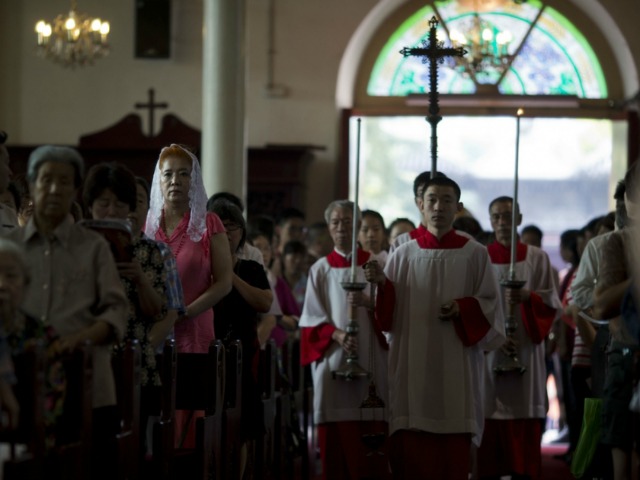In its bid for formal diplomatic relations with the Vatican, Beijing is now ready to offer a compromise in the contentious issue of how Catholic bishops are appointed in China. This represents an important departure from Beijing’s hardline position of “no interference” from the Vatican in religious affairs as a condition for relations.
Last February 18, responding to news that Pope Benedict XVI was retiring, Foreign Ministry Spokesperson Hong Lei reiterated that “China is willing to develop relations with the Vatican if the Vatican severs its diplomatic ties with Taiwan and refrains from interfering in China’s internal affairs… particularly the interference in the name of religion.”
There have been no formal diplomatic relations between China and the Holy See since 1951, when China cut off ties with the Vatican. Since then, the Holy See has had diplomatic relations with Taiwan alone.
Now, according to information “leaked” to Wen Wei Po, the Hong-Kong based Chinese newspaper with close ties to the Communist party, Beijing’s position toward the Vatican is thawing.
Beijing is offering two possible scenarios for the joint naming of Catholic bishops in China. In the first case, the candidate would be selected by the diocese according to the procedures currently in force, but would be consecrated only after obtaining the consent of the Holy See. In the second scenario, China’s State Administration for Religious Affairs (SARA) would propose the names of two candidates to the Holy See for each vacant post. And if neither received consent from the Vatican, the selection process would start over from scratch.
This compromise may be just what the Vatican was waiting for. Reports in August suggested that Beijing’s requirement of the Vatican’s severance of diplomatic ties with Taiwan might be the easier of their two conditions, with the appointment of bishops being the real obstacle.
In 2005, Hong Kong bishop Joseph Zen said that “the Holy See has been thinking of giving up Taiwan” in order to establish relations with mainland China, but also indicated that the Vatican expected something from China in return for severing ties with Taiwan, namely in the area of China’s accusations of “interference” in religious affairs.
The Holy See so far has not delivered denials or confirmations on the contents of the article, but a piece in the Global Times indicated that a response is expected in the first months of 2015.
A more serious problem in Sino-Vatican relations may be the issue of the Chinese Catholic Patriotic Association (CCPA), an organ established by Mao Zedong in 1958 to control the Catholic Church within China. Mao expelled all foreign missionaries and imprisoned many bishops and priests with ties to Rome, setting up the CCPA in order to establish a Chinese Catholic Church independent of the Holy See, in conformity to Socialist Party ideals.
In a 2007 letter to the Church in China, Pope Benedict expressed his hope “that concrete forms of communication and cooperation between the Holy See and the People’s Republic of China may soon be established.” At the same time, he said that the “declared purpose” of the CCPA “to implement ‘the principles of independence and autonomy, self-management and democratic administration of the Church’ is incompatible with Catholic doctrine.”

COMMENTS
Please let us know if you're having issues with commenting.